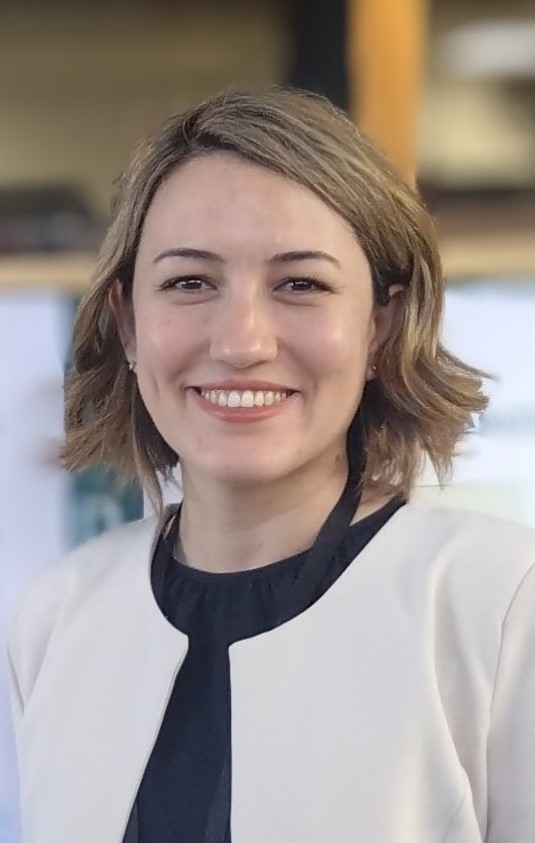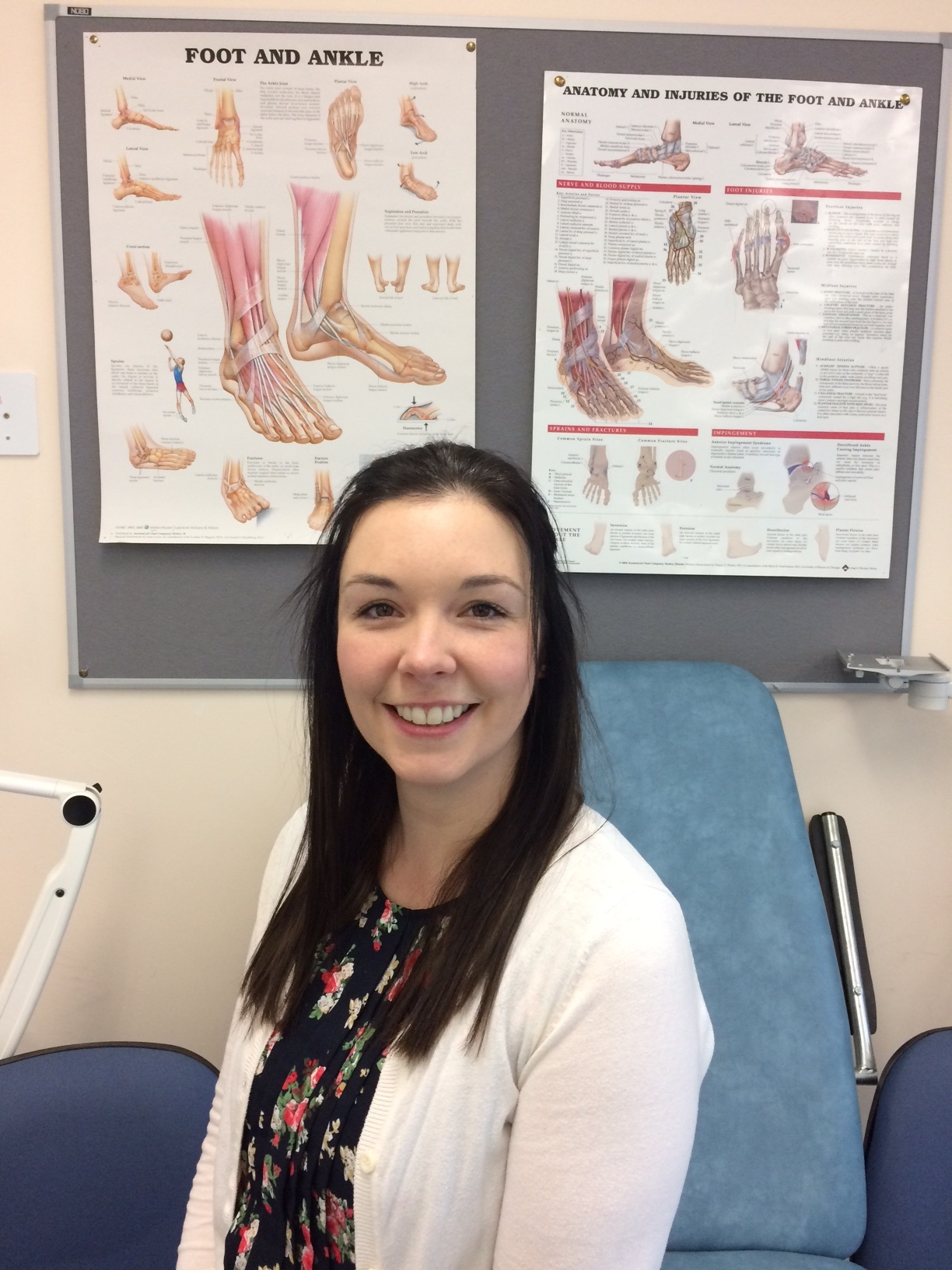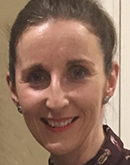-
Courses

Courses
Choosing a course is one of the most important decisions you'll ever make! View our courses and see what our students and lecturers have to say about the courses you are interested in at the links below.
-
University Life

University Life
Each year more than 4,000 choose University of Galway as their University of choice. Find out what life at University of Galway is all about here.
-
About University of Galway

About University of Galway
Since 1845, University of Galway has been sharing the highest quality teaching and research with Ireland and the world. Find out what makes our University so special – from our distinguished history to the latest news and campus developments.
-
Colleges & Schools

Colleges & Schools
University of Galway has earned international recognition as a research-led university with a commitment to top quality teaching across a range of key areas of expertise.
-
Research & Innovation

Research & Innovation
University of Galway’s vibrant research community take on some of the most pressing challenges of our times.
-
Business & Industry

Guiding Breakthrough Research at University of Galway
We explore and facilitate commercial opportunities for the research community at University of Galway, as well as facilitating industry partnership.
-
Alumni & Friends

Alumni & Friends
There are 128,000 University of Galway alumni worldwide. Stay connected to your alumni community! Join our social networks and update your details online.
-
Community Engagement

Community Engagement
At University of Galway, we believe that the best learning takes place when you apply what you learn in a real world context. That's why many of our courses include work placements or community projects.
Wound Healing and Tissue Repair (PDip)
Course Overview
This programme will not be offered in Academic Year 2024-2025.
This programme aims to prepare healthcare professionals to effectively manage (within their scope of practice) challenging wound healing and tissue repair issues. The goal is to provide experienced, dedicated healthcare professionals with the necessary knowledge and skills in wound healing and tissue repair to ensure the highest quality of care for patients. Lecturers and facilitators on this course are recognised for their expertise nationally and internationally through research, education and clinical practice.
Unique features of this programme include the multidisciplinary approach. It is the first Level 9 course in skills development and competency in compression therapy and Doppler technique. The lecturers are internationally recognised for their expertise in this field.
Scholarships available
Find out about our Postgraduate Scholarships here.
Applications and Selections
Applications are made online via the University of Galway Postgraduate Applications System.
Who Teaches this Course
Lecturers and facilitators from outside University of Galway include:
- Ms Mary Burke, Clinical Educator
- Ms Marion Cahill-Collins, ANP Vascular
- Ms Tina Clarke Podiatrist
- Mr Wael Tawfick Consultant Vascular Surgeon
- Ms Fiona Willis, Nursing Practice Co-Ordinator

School of Nursing and Midwifery
Aras Moyola
University of Galway
View Profile

School of Nursing & Midwifery
NUI Galway
View Profile

Podiatric Medicine
School of Health Sciences
University of Galway
View Profile
Requirements and Assessment
Assessment methods vary according to the specific module and may include: written assignments, e-tivities, blogs and OSCEs.
Key Facts
Entry Requirements
Applicants must:
- Hold an honours bachelor‘s degree at NFQ Level 8 in a healthcare profession. Applicants who do not hold an honours degree or Higher Diploma (Level 8) must demonstrate that they have successfully completed (in the previous two years) a module at Level 9. Please consult the professional credit awards at Level 9;
- Hold current registration with their relevant governing body in Ireland, for example, NMBI, CORU, IMC;
- Be currently employed in healthcare;
- Have a minimum of six months’ clinical experience in an appropriate setting since qualification;
- Students taking the Venous Leg Ulceration module [NU6104] must be in a position to work with clinicians providing care for patients with venous leg ulceration in a hospital or community setting, including the application of compression therapy and recording of Doppler ultrasound.
Additional Requirements
Recognition of Prior Learning (RPL)
Duration
Postgraduate Diploma: 1 year full-time
Masters: 2 years full-time (if eligible for second year following Postgraduate Diploma)
Next start date
September 2025
A Level Grades ()
Average intake
10
QQI/FET FETAC Entry Routes
Closing Date
This programme will not be offered in Academic Year 2024-2025
NFQ level
9
Mode of study
ECTS weighting
90
Award
CAO
Course code
MHSC-WHTR
Course Outline
Using a blended learning approach, this programme will be delivered through a combination of online learning and face-to-face skills teaching. On completion of Year 1 students have the option of being awarded a Postgraduate Diploma or (if they have achieved the minimum 60% average mark across these modules) may progress onto the second year to complete the MSc programme.
Modules are delivered using guided learning packs that provide a study guide, directed learning activities (both online and practice based), key reading, reflective points and e-tivities.
Students will be supported online as they work through each unit, using the virtual learning environment BlackBoard Collaborate. Students will be expected to engage in blogs, to respond to posted questions or activities and to complete e-titivies. The face-to-face teaching component (workshops) will take place at intervals throughout the semester. Workshops will focus on key skills and application.
Modules:
- Students will complete three core and three specialist modules in the first year (60 ECTS). Eligible students will then complete a research dissertation (30 ECTS) in the second year.
- Core modules: Advanced Research Methods; Clinical Governance—Supporting Safe Practice; Service Improvement.
- Specialist modules: Management of Venous Leg Ulceration; Management of Diabetic Foot Disease; Advanced Wound Care Management or Vascular Disease.
Curriculum Information
Curriculum information relates to the current academic year (in most cases).Course and module offerings and details may be subject to change.
Glossary of Terms
- Credits
- You must earn a defined number of credits (aka ECTS) to complete each year of your course. You do this by taking all of its required modules as well as the correct number of optional modules to obtain that year's total number of credits.
- Module
- An examinable portion of a subject or course, for which you attend lectures and/or tutorials and carry out assignments. E.g. Algebra and Calculus could be modules within the subject Mathematics. Each module has a unique module code eg. MA140.
- Optional
- A module you may choose to study.
- Required
- A module that you must study if you choose this course (or subject).
- Semester
- Most courses have 2 semesters (aka terms) per year.
Year 1 (60 Credits)
Required NU623: Clinical Governance: Supporting Safe Practice
NU623: Clinical Governance: Supporting Safe Practice
Semester 1 | Credits: 10
Errors are inevitable in healthcare systems (Commission on Patient Safety and Quality Assurance, 2008). It is estimated that medical errors would rank 5 in the top 10 causes of death in the United States, ahead of accidents, diabetes, and Alzheimer’s disease, if included on the National Centre for Health Statistics’ list (Joint Commission, 2005 p.7). In Ireland, the Commission on Patient Safety and Quality Assurance (2008) acknowledge that healthcare will never be risk free but argue that it is critical that the systems in place are as safe as possible, that the right ‘checks and balances’ are in place and that learning results from mistakes. To ensure this happens it is important that programmes prepare nurses to promote and enhance clinical safety. The module is guided by the National Patient Safety Framework (The Australian Council for Safety and Quality in Health Care, 2005) and the WHO Patient Safety Curriculum Guide for Medical Schools (World Health Organisation, 2009).
(Language of instruction: English)
Learning Outcomes
- Critique the concepts of ‘safety’ and ‘risk’ in context of their practice setting.
- Examine the concept of ‘clinical governance’ in the Irish healthcare system
- Identify and evaluate the factors that determine the quality and safety of healthcare from the perspective of (i) the nurse or midwife (ii) the client (iii) the multidisciplinary team and (iv) the wider healthcare system
- Identify local policies and procedures to improve clinical safety and apply safety principles in practice.
- Debate the tensions between ‘managing risk’ and ‘client autonomy
- Explore their role in promoting and enhancing safety as a member of the multidisciplinary team
- Complete a risk assessment relevant to their practice setting.
- Evaluate their contribution to quality improvement in their practice setting
Assessments
- Continuous Assessment (100%)
Teachers
- EIMEAR BURKE:
Research Profile |
Email
- FRANCES FARRELLY:
Research Profile |
Email
- SINÉAD HAHESSY:
Research Profile |
Email
- CATHERINE MEAGHER:
Research Profile |
Email
- MARI MORAN:
Research Profile |
Email
- CLAIRE O'TUATHAIL:
Research Profile |
Email
- CLAIRE QUINN:
Research Profile |
Email
- Katherine Pigott:
Research Profile |
Email
- Ciara O'Meara:
Research Profile |
Email
Note: Module offerings and details may be subject to change.
Required NU6439: Service Improvement
NU6439: Service Improvement
Semester 2 | Credits: 10
This module will allow the student the opportunity to plan and implement, with their manager, and an academic facilitator, a service improvement initiative. The project will focus on an issue of relevance to client care or service improvement and must be supported by the student’s line manager and/or clinical facilitator. Examples of the types of projects include: completion of a defined literature review supporting some aspect of unit work, preparation of a patient education leaflet (supported by an evidence based rationale presented separately), development of a patient education pack (supported by an evidence based rationale presented separately), development of a strategy to reduce waiting time, an initiative that will improve patient/staff safety, development/implementation of guidelines/policies, an initiative that improves the quality of patient services or the work environment, an initiative that saves time/money or any issue/problem/change that can be addressed through action. This work must be completed within a calendar year.
(Language of instruction: English)
Learning Outcomes
- Critically examine a practice issue and contribute to service improvement
- Integrate and apply learning from other modules
- Work collaboratively with peers and clients
- Become an autonomous and independent learner
- Develop the skills and knowledge needed to implement a change in clinical practice
- Develop their skills of analysis, critical thinking, problem-solving and reflection
Assessments
- Continuous Assessment (100%)
Teachers
- MAURA DOWLING:
Research Profile |
Email
- FRANCES FARRELLY:
Research Profile |
Email
- SINÉAD HAHESSY:
Research Profile |
Email
- CATHERINE MEAGHER:
Research Profile |
Email
- MARI MORAN:
Research Profile |
Email
- MARCELLA HORRIGAN-KELLY:
Research Profile |
Email
- CLAIRE QUINN:
Research Profile |
Email
- DEIRDRE FITZGERALD:
Research Profile |
Email
- Duygu Sezgin:
Research Profile |
Email
- Martina Giltenane:
Research Profile |
Email
- Katherine Pigott:
Research Profile |
Email
- Ciara O'Meara:
Research Profile |
Email
Note: Module offerings and details may be subject to change.
Required NU6104: Management of venous leg ulceration
NU6104: Management of venous leg ulceration
Semester 1 | Credits: 10
This module aims to give participants opportunities to explore the topic of venous leg ulceration in-depth and to enable critical practice in this specialised area of care. The demands of wound care and prevention require comprehensive and detailed analysis of the physiological and psychosocial components of the patient experience along with technical and practical skills to perform holistic assessment and to provide safe and effective treatment based upon current evidence.
(Language of instruction: English)
Learning Outcomes
- Develop a critical understanding of the physiology of wound healing and analyse in-depth factors which affect healing.
- Critically evaluate the process of holistic assessment and appraise tools and strategies which will facilitate this. •
- Critically explore and evaluate the current evidence base for the care and management of clients with venous leg ulcers and be able to predict likely outcomes of treatment based on such evidence.
- Demonstrate competency in the application of compression therapy. • Demonstrate competency in the recording of Ankle Bracial Pressure Index.
- Reflect critically upon current developments in health and social policy and legislation which impact upon wound healing
Assessments
- Department-based Assessment (100%)
Teachers
- MARI MORAN:
Research Profile |
Email
- GEORGINA GETHIN:
Research Profile |
Email
- Duygu Sezgin:
Research Profile |
Email
- Katherine Pigott:
Research Profile |
Email
Reading List
- "Wound care at a glance" by Peate, Ian; Glencross, Wyn
ISBN: 9781118684672.
Publisher: Wiley Blackwell - "Acute and Chronic Wounds: Current Management Concepts" by Ruth Bryant RN MS CWOCN, Denise Nix RN MS CWOCN
ISBN: 9780323069434.
Publisher: Mosby - "Lower extremity wounds" by edited by Karen Ousey and Caroline McIntosh
ISBN: 9780470059081.
Publisher: Chichester, England ; John Wiley, c2008.
Note: Module offerings and details may be subject to change.
Required NU502: Advanced Research Methods
NU502: Advanced Research Methods
Semester 2 | Credits: 10
.
This module is designed to enable students to explore the methodological and practical issues of research. It will help students determine the appropriate research design for research questions in their practice and provides an opportunity for students to debate, challenge and clarify research issues. This module will also help students understand the systematic review process and types of reviews, Finally, the module prepares students to develop a research protocol
(Language of instruction: English)
Learning Outcomes
- Demonstrate an understanding of what is meant by ‘evidence-based practice’
- Discuss theoretical perspectives on research methodology
- Formulate an answerable clinical question using the PICO approach
- Develop a database search strategy
- Explain clearly the key characteristics, strengths and weaknesses of the main qualitative and quantitative research methodologies
- Articulate a research problem and formulate a research question or hypothesis as appropriate to guide the conduct of a study
- Justify the use of appropriate data collection, sampling, and data analysis methods for qualitative and quantitative research
- Discuss rigour in the context of quantitative and qualitative research
- Discuss evidence synthesis of quantitative and qualitative research
- Create a plan with clear rationales for data collection, sampling, data analysis and rigour to be used when conducting a primary qualitative or quantitative study or evidence synthesis
Assessments
- Continuous Assessment (100%)
Teachers
- MAURA DOWLING:
Research Profile |
Email
- BERNARD MCCARTHY:
Research Profile |
Email
- BRONA MOONEY:
Research Profile |
Email
- MARI MORAN:
Research Profile |
Email
- CLAIRE O'TUATHAIL:
Research Profile |
Email
- SIOBHÁIN SMYTH:
Research Profile |
Email
- AMANDA WALSH:
Research Profile |
Email
- DECLAN DEVANE:
Research Profile |
Email
- FIONNUALA JORDAN:
Research Profile |
Email
- STEPHEN KENNETH BRADLEY:
Research Profile |
Email
- Peter Carr:
Research Profile |
Email
- Katherine Pigott:
Research Profile |
Email
Note: Module offerings and details may be subject to change.
Required PO5101: Management of Diabetic Foot Disease
PO5101: Management of Diabetic Foot Disease
Semester 2 | Credits: 10
The management of diabetic foot disease requires a multi-disciplinary approach, expert knowledge and a dedication to service provision and service development underpinned by evidence based practice approach. The increasing pace of change and complexity in management of diabetic foot disease has shaped the design of this module. The focus is to ensure students have the capacity to remain current and are capable of updating themselves on new interventions and approaches to the prevention and management of diabetic foot disease. The goal is to teach for life-long learning. Therefore, the module has been carefully designed in stages (see Stages 1- 5) which build on one another with the aim of ensuring that students have a thorough understanding of and in-depth knowledge of the principles of prevention and management, and how these can be applied to diabetic foot disease. Clinical care will be considered in the context of multi-professional management which will involve an appreciation of National and International Guidelines in addition to a range of strategic healthcare polices and initiatives. Students will develop critical reasoning techniques and problem solving skills which will be verified by evaluation of evidence to enable sound judgements to be reached and effective multi-professional communication to take place. These themes will be developed with particular relevance to the student’s work setting.
(Language of instruction: English)
Learning Outcomes
- Critically analyse research and evidence underpinning the multi-professional management of manifestations of diabetes in the lower limb and foot
- Appraise relevant policy and position documents relating to management of diabetes in the lower limb and foot
- Formulate problem solving strategies that relate to assessment, diagnosis and treatment strategies for people with diabetes.
- Evaluative and explore areas of uncertainty, ambiguity, limitations of knowledge and current innovations in managing people with diabetes.
Assessments
- Continuous Assessment (100%)
Teachers
- FIONA LOWRY:
Research Profile |
Email
- CAROLINE DAWN MCINTOSH:
Research Profile |
Email
- MARI MORAN:
Research Profile |
Email
- AMANDA WALSH:
Research Profile |
Email
- GEORGINA GETHIN:
Research Profile |
Email
- CLAIRE MACGILCHRIST:
Research Profile |
Email
- Olga Carey:
Research Profile |
Email
- Duygu Sezgin:
Research Profile |
Email
Note: Module offerings and details may be subject to change.
Optional RPL010: Recognised Prior Learning
RPL010: Recognised Prior Learning
Semester 1 and Semester 2 | Credits: 10
Assessments
- Continuous Assessment (100%)
Note: Module offerings and details may be subject to change.
Optional RPL020: Recognised Prior Learning
RPL020: Recognised Prior Learning
Semester 1 and Semester 2 | Credits: 20
Assessments
- Continuous Assessment (100%)
Note: Module offerings and details may be subject to change.
Optional RPL030: Recognised Prior Learning
RPL030: Recognised Prior Learning
Semester 1 and Semester 2 | Credits: 30
Assessments
- Continuous Assessment (100%)
Note: Module offerings and details may be subject to change.
Optional NU438: Advanced Wound Care Management
NU438: Advanced Wound Care Management
Semester 1 | Credits: 10
This module aims to give course members opportunities to explore the subject of wound management in-depth to enable critical practice in this specialised area of care. The demands of wound care and prevention require comprehensive and detailed analysis of the physiological and psychosocial components of the patient experience along with technical and practical skills to perform holistic assessment and to provide safe and effective treatment based upon current evidence.
(Language of instruction: English)
Learning Outcomes
- Learning Outcomes • Develop a critical understanding of the physiology of healing and analyse in- depth factors which affect healing • Critically evaluate the process of holistic assessment and appraise tools and strategies which will facilitate this • Examine critically and evaluate the evidence base for the care and management of clients with acute and chronic wounds and be able to predict likely outcomes of treatment based on such evidence • Reflect critically upon current developments in health and social policy and legislation which impact upon wound care and prevention and resource allocation.
Assessments
- Continuous Assessment (100%)
Teachers
- BERNARD MCCARTHY:
Research Profile |
Email
- MARI MORAN:
Research Profile |
Email
- CLAIRE O'TUATHAIL:
Research Profile |
Email
- SIOBHÁIN SMYTH:
Research Profile |
Email
- GEORGINA GETHIN:
Research Profile |
Email
- Duygu Sezgin:
Research Profile |
Email
- Katherine Pigott:
Research Profile |
Email
Reading List
- "Acute and Chronic Wounds: Current Management Concepts" by Ruth Bryant RN MS CWOCN, Denise Nix RN MS CWOCN
ISBN: 9780323069434.
Publisher: Mosby - "Lower extremity wounds" by edited by Karen Ousey and Caroline McIntosh
ISBN: 9780470059081.
Publisher: Chichester, England ; John Wiley, c2008. - "The practice of nursing research" by Nancy Burns, Susan K. Grove
ISBN: 0721691773.
Publisher: Philadelphia ; Saunders, c2001. - "Oxford textbook of palliative medicine" by edited by Nathan I. Cherny, Marie T. Fallon, Stein Kaasa, Russell K. Portenoy, David C. Currow.
ISBN: 9780199656097.
Publisher: Oxford [Oxfordshire]; Oxford University Press
Note: Module offerings and details may be subject to change.
Optional PO5102: Vascular Disease
PO5102: Vascular Disease
Semester 2 | Credits: 10
This level 9 module has been developed as a collaborative initiative between the Vascular Team, Saolta University HealthCare Group, the Discipline of Podiatric Medicine and the School of Nursing and Midwifery at NUI Galway. The management of patients with disease requires a multidisciplinary approach, expert knowledge and a dedication to service provision and service development underpinned by evidence-based practice. Being cognisant of this the module will be delivered by a team of experts in vascular diseases from a range of specialities including vascular, medicine, podiatry, nursing, and primary care experts. The focus of the module is to ensure that the student has the capacity to remain current and is capable of updating themselves on new interventions and approaches to the prevention and management of vascular diseases. The goal is to facilitate life-long learning. Therefore, the module has been carefully designed with the aim of ensuring that students have a thorough understanding of, and in-depth knowledge of the principles of prevention and management, and how these can be applied to vascular disease. Clinical care will be considered in the context of multi-professional management which will involve an appreciation of National and International Guidelines in addition to a range of strategic healthcare polices and initiatives. Students will develop critical reasoning techniques and problem solving skills, which will be verified by evaluation of evidence to enable sound judgements to be reached and effective multi-professional communication to take place. These themes will be developed with particular relevance to the student’s work setting.
(Language of instruction: English)
Learning Outcomes
- Critically analyse research and evidence underpinning the assessment and management of vascular diseases.
- Interpret and differentiate signs and symptoms of vascular diseases as they manifest.
- Effectively utilise a range of vascular assessment skills and communicate their findings
- Formulate problem-solving strategies that relate to assessment, diagnosis and management options for people with vascular disease.
- Evaluative and explore areas of uncertainty, ambiguity, limitations of knowledge and current innovations in managing people with vascular disease.
Assessments
- Continuous Assessment (100%)
Teachers
- FIONA LOWRY:
Research Profile |
Email
- CAROLINE DAWN MCINTOSH:
Research Profile |
Email
- MARI MORAN:
Research Profile |
Email
- NIGEL ROBERTS:
Research Profile |
Email
- AMANDA WALSH:
Research Profile |
Email
- GEORGINA GETHIN:
Research Profile |
Email
- CLAIRE MACGILCHRIST:
Research Profile |
Email
- Duygu Sezgin:
Research Profile |
Email
Reading List
- "Aiyagari, V. Gorelick,Hypertension and Stroke: Pathophysiology and Management (Clinical Hypertension and Vascular Diseases)," by Aiyagari, V. Gorelick, PB
ISBN: 10: 331929150.
Publisher: Human Press - "Dx/Rx: Peripheral Vascular Disease" by Alvaro Alonso, Daniel D. McManus, Daniel Z. Fisher
ISBN: 0763755389.
Publisher: Jones & Bartlett Publishers - "Handbook of Interventions for Structural Heart and Peripheral Vascular Disease" by Khanna, NN. Henry, M
ISBN: 9351529908.
Publisher: Jaypee Brothers Medical Publishers - "Peripheral Vascular Disease in Primary Care (Chronic Diseases in Primary Care)." by Sharma, A.
ISBN: 1846194350.
Publisher: CRC Press
Note: Module offerings and details may be subject to change.
Year 2 (30 Credits)
Required NU6515: Research Dissertation
NU6515: Research Dissertation
Semester 1 and Semester 2 | Credits: 30
Students will be required to undertake a piece of primary research or an evidence synthesis on a topic relevant to their practice area. Students will be assigned a research supervisor who will support them in undertaking this work.
(Language of instruction: English)
Learning Outcomes
- Demonstrated knowledge of ethical requirements and procedures by negotiating access to research site/participants by securing ethical approval from the appropriate Research Ethics Committee in the case of primary research. Or in the case of evidence synthesis/secondary data analysis, demonstrate knowledge in the process of negotiating access to full text data not available in the library databases.
- Developed a research question(s) of significance to area of of significance to their specialist nursing/midwifery professional practice or a problem statement(s) based on a review of evidence-based literature.
- Identified and apply an appropriate method(s) to achieve the objectives of the research question (s)/ hypothesis for primary data collection, or in the case of secondary data analysis, employ valid and reliable method(s) for processing and analysing archived research data
- Critically discuss research findings with reference to the methods used, current literature and professional practice.
- Prepared a scholarly report (Option A) research article (Option B) ready for publication which will demonstrate accurate expression, analysis, and synthesis of the research subject.
Assessments
- Continuous Assessment (100%)
Teachers
- GLORIA AVALOS:
Research Profile |
Email
- MIRIAM BRENNAN:
Research Profile |
Email
- EIMEAR BURKE:
Research Profile |
Email
- DYMPNA CASEY:
Research Profile |
Email
- MAURA DOWLING:
Research Profile |
Email
- ANNE FALLON:
Research Profile |
Email
- FRANCES FARRELLY:
Research Profile |
Email
- SINÉAD HAHESSY:
Research Profile |
Email
- ANDREW HUNTER:
Research Profile |
Email
- BERNARD MCCARTHY:
Research Profile |
Email
- TERESA MEANEY:
Research Profile |
Email
- BRONA MOONEY:
Research Profile |
Email
- MARI MORAN:
Research Profile |
Email
- CLAIRE O'TUATHAIL:
Research Profile |
Email
- SIOBHÁIN SMYTH:
Research Profile |
Email
- PATRICIA HEALY:
Research Profile |
Email
- GEORGINA GETHIN:
Research Profile |
Email
- DECLAN DEVANE:
Research Profile |
Email
- MARCELLA HORRIGAN-KELLY:
Research Profile |
Email
- FIONNUALA JORDAN:
Research Profile |
Email
- CATHERINE HOUGHTON:
Research Profile |
Email
- STEPHEN KENNETH BRADLEY:
Research Profile |
Email
- CLAIRE QUINN:
Research Profile |
Email
- MARION O'REGAN:
Research Profile |
Email
- Derek O'Keeffe:
Research Profile |
Email
- Peter Carr:
Research Profile |
Email
- Katherine Pigott:
Research Profile |
Email
- Ciara O'Meara:
Research Profile |
Email
Note: Module offerings and details may be subject to change.
Optional RPL030: Recognised Prior Learning
RPL030: Recognised Prior Learning
Semester 1 and Semester 2 | Credits: 30
Assessments
- Continuous Assessment (100%)
Note: Module offerings and details may be subject to change.
Why Choose This Course?
Career Opportunities
Students graduating from this programme will be able to enhance their clinical skills and knowledge in the area of wound healing and tissue repair. As wound management crosses many disciplines, the career path will vary according to the discipline. In the field of nursing, this programme will support nurses’ application for the role of Clinical Nurse Specialist in Tissue Viability (but does not guarantee that such an appointment will be made).
Who’s Suited to This Course
Learning Outcomes
Transferable Skills Employers Value
Work Placement
Study Abroad
Related Student Organisations
Course Fees
Fees: EU
Fees: Tuition
Fees: Student levy
Fees: Non EU
Student levy €140—payable by all students and is not covered by SUSI. Further detail here.
Find out More
Dr Duygu Sezgin
T: +353 91 493 344
E: duygu.sezgin@niversityofgalway.ie
www.universityofgalway.ie/medicine-nursing-and-health-sciences/nursing/

Colette Edwards | 2nd year MSc student
The MSc in Wound Healing and Tissue Repair afforded me the ideal platform to progress my educational journey in the field of Tissue Viability. I chose this programme as the content covered all relevant aspects in the field, with teaching and learning provided by an array of national and international experts. With an onsite School of Nursing and Midwifery along with School of Podiatry, NUI Galway was the ideal location to undertake the programme in Wound Healing and Tissue Repair. The variety within the specialist modules such as Management of Venous Leg Ulcers, Management of Diabetic Foot Disease, Vascular Disease and Advanced Wound Care Management ensured that all aspects of Tissue Viability could be studied in greater depth. At Level 9 the programme was of course at times challenging. However, the support provided by the module leaders and the layout of the module assessments ensured ongoing and supported engagement. The programme has undeniably equipped me as a clinician with invaluable clinical and academic skills which help me to align my everyday practice with current evidence-based research. I currently hold the position of Tissue Viability Clinical Nurse Specialist.





















